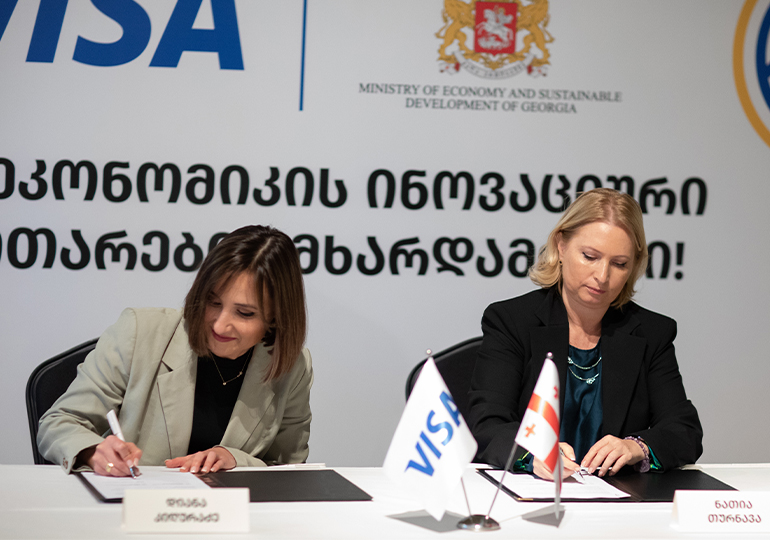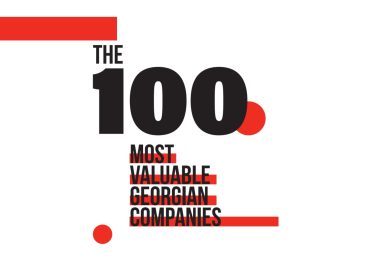Visa and the Ministry of Economy and Sustainable Development of Georgia authorized a two-year partnership to support local tourism and SMEs, promote economic and financial inclusion and boost Innovations in Georgia.
Visa, the world’s leader in digital payments, has signed a two-year Memorandum of Understanding (MoU) with the Ministry of Economy and Sustainable Development of Georgia to address the needs of small and medium-sized enterprises (SMEs) impacted by COVID-19, support local tourism, contribute to the progress of economic and financial inclusion, and drive innovations in Georgia.
The document on future cooperation was signed by Natia Turnava, the Minister of Economy and Sustainable Development and Diana Kiguradze, Visa Country Manager for the Caucasus Region. The official signing ceremony of the Memorandum was held at the National Museum of Georgia, one of the must-see cultural destinations in the country.
This memorandum is aimed to foster cooperation between Visa and the Ministry of Economy and Sustainable Development establishing a collaborative framework, which will entail the following aspired objectives:
- Support of small and medium-sized enterprises (SMEs) impacted by COVID-19, by offering joint educational programs, such as launching Visa Business Skills platform in cooperation with Enterprise Georgia and accelerating digitization process;
- Promote local tourism and increase the number of local and international travellers through joint activities;
- Explore and accelerate innovations in Georgia, within tailored projects to promote economic and financial inclusion.
“The signing of a memorandum between Ministry of Economy and Sustainable Development of Georgia and Visa will help to accelerate the digital transformation for Georgian small and medium-sized enterprises. Within the upcoming years, Visa will support both the Entrepreneurship Incentive Program – “Enterprise Georgia” – and the National Tourism Administration, which is very important given the international image of the global company. As a result of the cooperation, educational programs will be implemented to accelerate the digital transformation of the local small and medium-sized companies, as well as joint marketing campaigns will be planned in order to stimulate domestic and international tourism using the specific data shared by Visa. It is important that Visa is a supporter of small and medium-sized businesses, including the development of the tourism sector in Georgia.” – said Natia Turnava, Minister for the Economy and Sustainable Development.
”Signing of this memorandum today marks the creation of an important collaborative platform for Visa and Georgia aimed at further development of the national economy. Focusing on three strategic pillars, such as SME’s support, local tourism development, and bringing innovations to the country, together with the Ministry of Economy and Sustainable Development and all involved parties, we aspire to achieve a long-term positive effect of our mutual work for society. At Visa, we also believe in the innovative and technological future of Georgia, which also preserves and endorses national cultural heritage and promotes the country as one of the world’s best destinations”. – noted Diana Kiguradze, Visa Country Manager for the Caucasus region.
By supporting local tourism development, Visa will be sharing with the Ministry specific data, including deep analysis and insights of travellers’ patterns. The designed framework will enable effective tourist traffic stimulation strategy planning, helping to identify soft spots and gap analysis. It will help to promote and effectively explore the touristic potential of the country, strengthening existing routes and opening new ones.
With a global financial literacy initiative and ambitious goal to digitalize 50 million small and medium enterprises worldwide, Visa will present in Georgia its global digital platform – Practical Business Skills (PBS). This education platform featuring more than 50 online modules will address the needs of entrepreneurs at various stages of the business lifecycles.
















